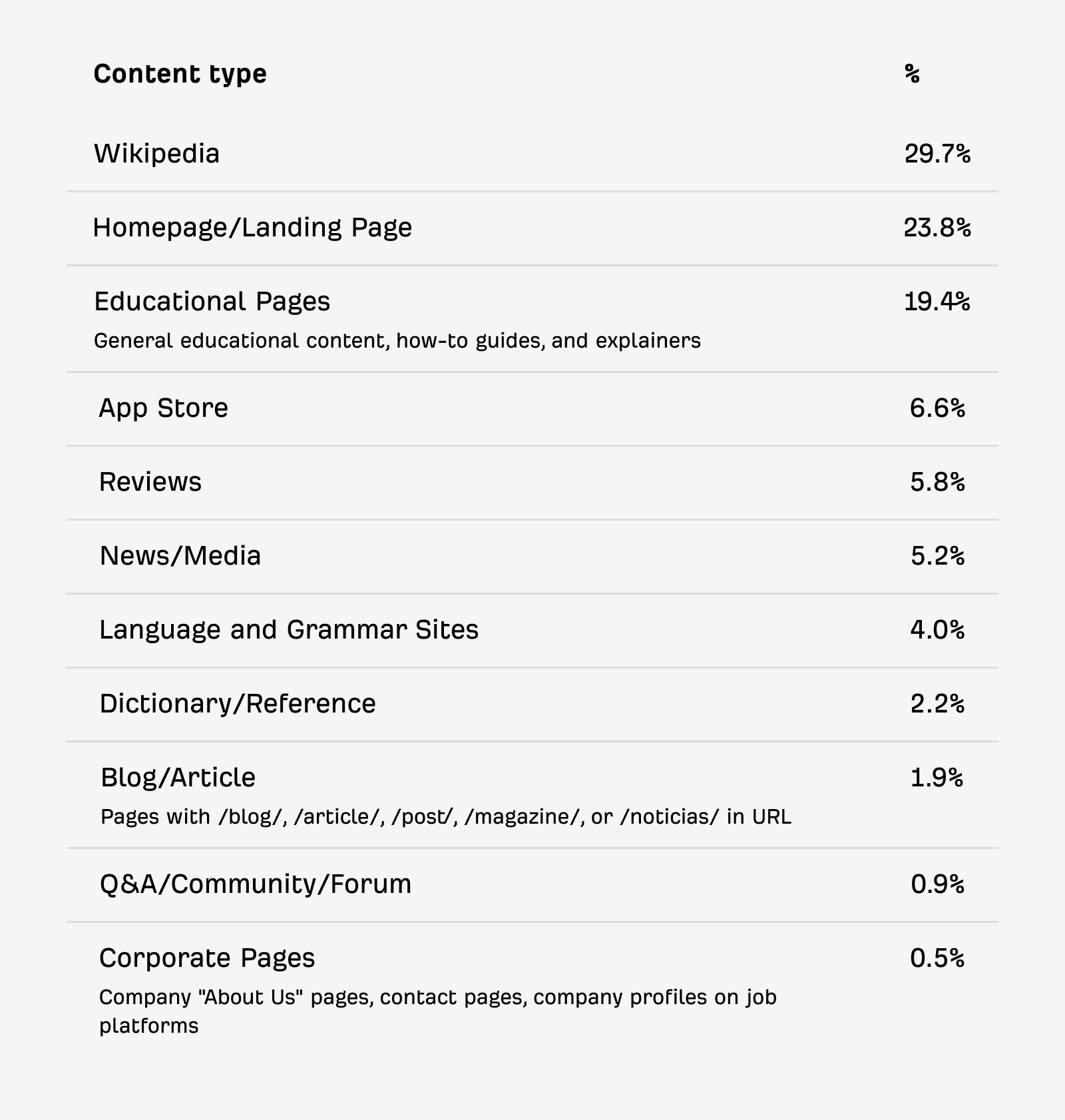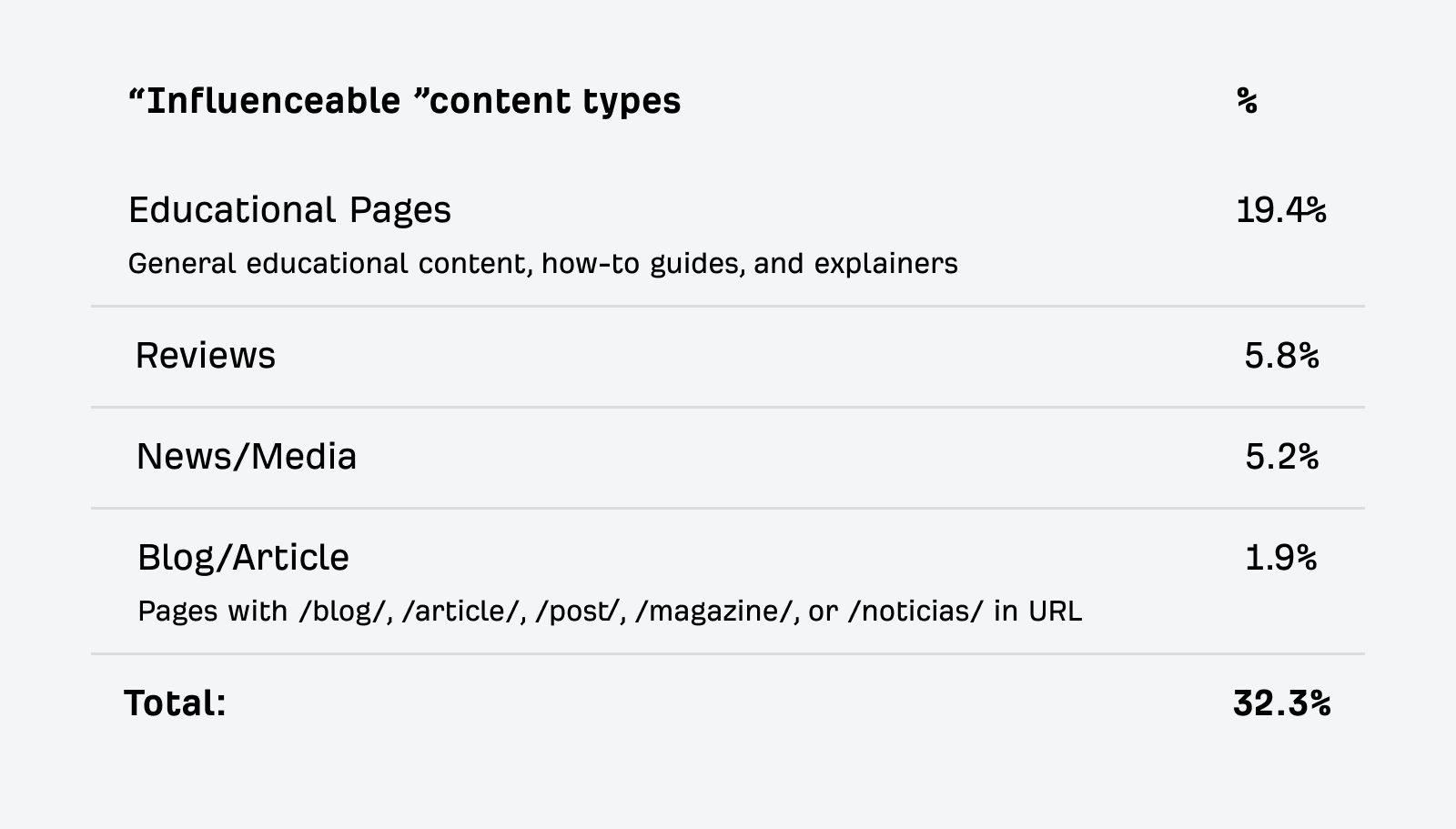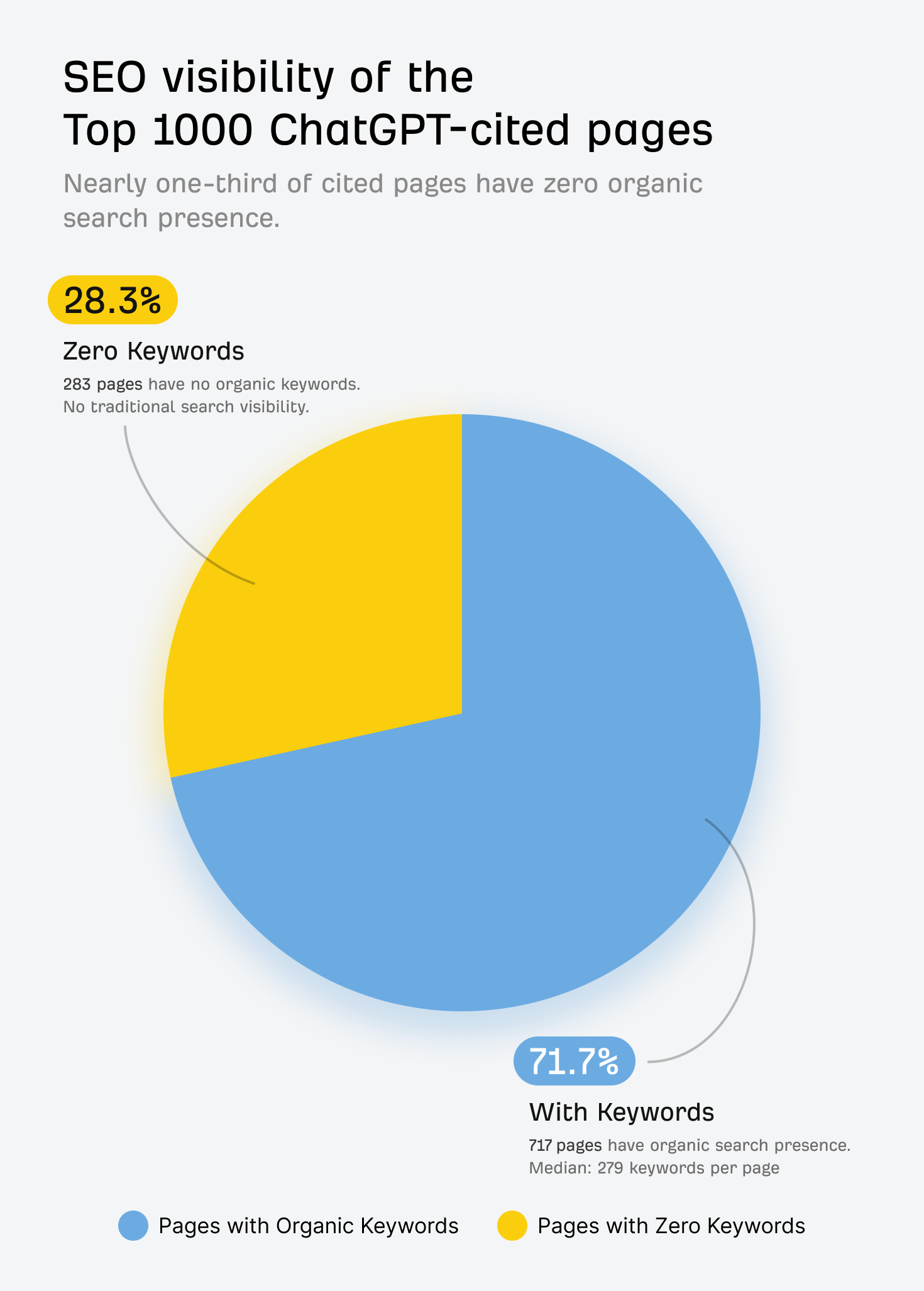Cracking ChatGPT's Citation Code
%20(5).jpg)
October 30, 2025
For decades, marketers and search engine strategists have dedicated themselves to a singular, monumental task: understanding the mind of Google. We have dissected its algorithms, debated its ranking factors, and built entire industries around appeasing its ever-shifting logic. But a new intelligence is now shaping how the world accesses information, and its thought process is proving to be an entirely different enigma. That intelligence is ChatGPT, and a groundbreaking analysis of its most-cited sources reveals a landscape that is both alien and disruptive to the established rules of digital marketing.
An in-depth look at the AI's top 1,000 cited pages uncovers a content ecosystem that operates on a different set of principles. It's a world where traditional outreach is often futile, where pages with zero search visibility can become authoritative sources, and where the old metrics of page authority are being fundamentally challenged. For brands and publishers, this isn't just a curiosity; it's a look into the future of information discovery and a clear signal that the playbook for digital relevance is being rewritten before our eyes.
The Unsurprising King: Wikipedia's Absolute Dominance
The first and most resounding finding from the analysis is one that feels intuitively correct, yet its implications are profound. Wikipedia stands as the uncontested champion of ChatGPT's citations, towering over all other content types. This isn't merely a preference; it's a statement of values. ChatGPT is fundamentally drawn to content that is structured, comprehensive, and presented in a factual, reference-style format.
Wikipedia's architecture is a blueprint for what AI deems trustworthy and useful. It is a vast, interconnected web of knowledge, meticulously organized and built on a foundation of citations. This tells us that ChatGPT's core programming prioritizes encyclopedic depth over persuasive marketing copy. It seeks to build its responses from a bedrock of established facts, and Wikipedia provides the most efficient and extensive source for that foundation.
For content creators, the lesson is not necessarily to try and compete with Wikipedia, but to learn from its success. The future of content that gets cited by AI lies in building deep, well-organized knowledge hubs, not just standalone blog posts. It's a shift from targeting a single keyword to creating a comprehensive resource that exhausts a topic with clarity and verifiable information.


The Marketer's New Wall: Unreachable "Dead" Citations
Perhaps the most jarring discovery for the marketing community is the nature of the sources ChatGPT cites. Beyond Wikipedia, the AI references a wide array of content, including educational materials, corporate homepages, app store listings, and blogs. However, the analysis reveals a staggering truth: the vast majority of these opportunities are effectively closed to traditional marketing tactics.
A mere 32.3% of the top 1,000 citations are considered "pitch-worthy" or susceptible to outreach. This means over two-thirds of the AI's preferred sources are what the report calls "dead" citations. You cannot email a university's homepage and ask for a link. You cannot pitch a guest post to an app store listing. These are not content assets managed by editors looking for contributions; they are static, functional pages cited for their inherent authority or informational utility.
This finding represents a fundamental break from the link-building economy that has defined SEO for years. The art of outreach, relationship building, and guest posting—while still valuable for traditional search—is largely ineffective in influencing this new gatekeeper of information. The challenge is no longer about getting your content placed on other sites, but about becoming the kind of foundational source that an AI would cite directly.

Discovering the Invisible Web
In a twist that defies conventional SEO wisdom, the analysis found that nearly one-third of the pages ChatGPT cites have no traditional search visibility. These are ghost pages, invisible to Google's top rankings and often targeting long-tail topics with minimal, if any, search demand. This is a critical insight into how AI discovers and validates information.
ChatGPT is not simply scraping the top of Google's search results. It is operating as an independent discovery engine, capable of finding and elevating content based on its intrinsic relevance and freshness, rather than its popularity signals like backlinks or search rankings. It suggests the AI is capable of deep crawling, connecting disparate pieces of information across the web to find the most specific and accurate answer, even if that answer lives on an obscure page of a trusted website.
This phenomenon presents both a threat and an opportunity. It means that relying solely on search volume to guide content strategy may leave you invisible to AI. The opportunity lies in creating highly specific, niche content that serves a direct informational need. The kind of content that may never rank on page one of Google for a high-volume term could become a primary source for an AI model answering millions of user queries.
The Authority Paradox: Trusting the Domain, Not the Page
The relationship between authority and citations in ChatGPT's world is nuanced. The AI demonstrates a clear preference for pages from high-authority domains—websites with powerful, established backlink profiles. However, it frequently cites pages within those domains that have very low individual page authority scores. This is the authority paradox.
In essence, ChatGPT trusts the institution, not just the individual article. A high domain authority acts as a powerful seal of approval, giving the AI confidence to cite even a less popular page from that source. The median number of referring domains for a cited page was 70, confirming that these pages exist within a robust and trusted digital ecosystem. Site-level authority, it seems, provides a halo effect that elevates all of its content in the eyes of the AI.
This reinforces the long-term value of building a strong, authoritative brand and domain. While tactical, page-level SEO remains important for search, the path to influencing AI is through establishing overarching credibility. Your website as a whole must become a trusted library of information, allowing the AI to confidently pull any book from your shelves, regardless of how many people have checked it out before.
A New Playbook for an AI-First World
The evidence is clear: ChatGPT is not playing by Google's rules. The implications for marketers and content strategists are transformative. The old methods of chasing backlinks and targeting high-volume keywords are insufficient for this new paradigm. A new playbook is required, one focused on becoming an unimpeachable source of truth.
The focus must shift from outreach to authority, from gaming an algorithm to building a genuine knowledge base. This means investing in comprehensive, well-structured content that mimics the encyclopedic quality of Wikipedia. It means building the overall authority of your domain so that it becomes a trusted source in its own right. And it means daring to create content for niche, long-tail topics that may not have search volume but hold immense informational value.
The era of AI-driven information synthesis is here. The challenge is no longer just to rank, but to be cited. It is a more difficult, less gameable objective, but one that ultimately rewards what should have been the goal all along: creating the best, most authoritative, and most helpful content on the web.
%20(16).jpg)
%20(17).jpg)
%20(16).jpg)
